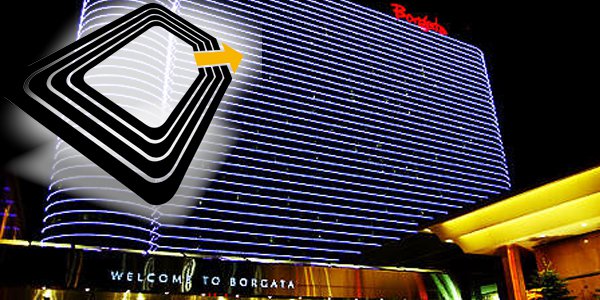The Pricey Lesson Cheaters Have Taught Casino Owners
Posted: April 23, 2014
Updated: October 4, 2017

As cheaters get better and better at their “job”, the time has come for gambling venues to gear up for the big fight against casino theft.
Modern gaming chips using tracking technology have been around for years, but they have been slow to catch on. However, a recent cheating scandal has scared most of the casino industry into rethinking its security measures.
Casino owners have learned a very valuable lesson this year, after the Borgata Hotel Casino and Spa in Atlantic City, New Jersey was involved in a major poker tournament scandal and ended up refunding $1.7 million to players who signed up for the event.
Poker tournament fiasco
The Borgata Hotel Casino and Spa was getting ready for its Winter Open in January, offering a guaranteed prize pool of $2 million. The amazing cash prize drew a total of 2,143 participants to the American poker room, but the whole thing turned into a fiasco when organizers discovered that one of the players had introduced fake chips into the competition.
Suspecting that his counterfeit chips were noticed, Christian Lusardi rushed back to his hotel room and flushed them down the toilet. Turns out it was a bad idea, because the pipes got clogged and his neighbors called maintenance, complaining that water was dripping in their room. Hotel staff found $2.7 million worth of fake Borgata chips and called the police.
The man was arrested, charged with rigging a publicly exhibited contest and is now awaiting trial. Meanwhile, Borgata had to cancel the big poker tournament, causing a major inconvenience to thousands of participants.
Now the New Jersey Division of Gaming Enforcement is making the casino refund the $560 entry fee to players who didn’t make the top 450, but may have still been affected by the cheater. On top of that, the company has to pay out $19,323 to each of the 27 participants who were in the tournament when it was cancelled. “Damages” add up to $1.7 million and some serious bad publicity.
Casino cheaters strike again
While Lusardi has been the main “star” of American gambling news for a while, he is not the only poker player using fake casino chips. A couple from North Virginia was recently caught doing the same at the Maryland Live! Casino.
According to the police, Rosa A. Nguyen bought $150,000 worth of fake chips, specially designed to look like real Maryland Live! casino chips. They cost her $12,000 and were ordered online. The couple wanted to make sure they got rid of the evidence and threw the counterfeit chips in Lake Accotink, not far from their own home, but they floated and were soon discovered by local authorities.
But amateur gamblers are not the only ones who try to cheat casinos. Pros also do it. It was only a week ago that Borgata decided to file a lawsuit against professional poker player Phil Ivey Jr., accusing him of using a card cheating scheme to win at baccarat.
The casino claims the cards had a defect which Ivey took advantage of. He allegedly used a cheating technique called edge sorting, which gave him an unfair advantage and helped him win $9.6 million between April and October 2012.
Expensive, but necessary
Now casinos are stepping up their security measures and replacing their old chips with new, high-tech ones that help prevent such mishaps. And they cost a lot, but they’re willing to pay the price.
Joe Lupo, the casino’s senior vice president told reporters: “This was very expensive, but very necessary. In order to have the biggest tournaments in Atlantic City and as the market leader, we need to ensure the integrity of the games.”
The high price of these new radio-frequency (RFID) chips is the main reason why many casinos haven’t bought them yet. They cost about twice as much as the traditional ones, but that’s not all. For the system to work, gambling venues also have to retrofit tables and cages, get new hardware, antennae and receptors. The Wynn Las Vegas has been using them since the casino opened in 2005. But even back then, the chips alone cost $2 million.
With such expenses, it looks like it will be a long time before all of Las Vegas and Macau use RFID chips. “Most of the casinos out there use the old chips that are not trackable. The RFID is not taking the industry by storm,” said Marco Benvenuti, co-founder of Duetto, a company which makes a web-based tracking application.
While most casinos continue to expose themselves to cheaters and players using fake chips, Borgata has learned its lesson and is not willing to take any risks in the future. Slowly, but surely, other venues that organize poker tournaments will follow its example.
















